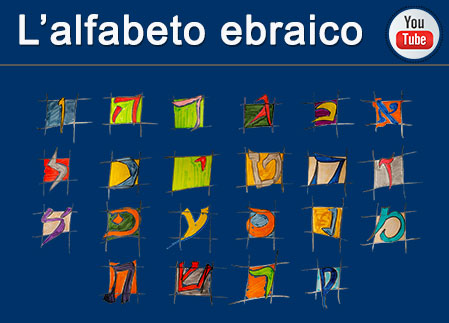Diocese of Brooklyn
Stati Uniti d'America 11/1979
INTRODUCTION1. The term "interreligious" refers to our relationship as Christians with those who are not part of the Christian tradition. These relationships are developed theologically in Conciliar documents such as the Declaration on the Relationship of the Church to Non-Christian Religions.
(NOSTRA AETATE)
2. One aim of interreligious dialogue is to foster a deeper understanding of, and respect for, the integrity of other peoples and faiths. Another aim is to identify the basic principles which are the common heritage of the world's great religions. However, it should be clear that interreligious dialogue does not promote homogenization, which may be defined as an attempt to create one religion out of the diverse traditions and sanctities of many religions.
3. In the document alluded to above, the Fathers of the Council made a momentous declaration regarding Judaism and Islam, Hinduism and Buddhism: we are urged to recognize these religions as positive forces with which the Church can and should enter into dialogue. The Declaration states: 'Let Christians, while witnessing to their own faith and way of life, acknowledge, preserve and encourage the spiritual and moral truths found among non-Christians, also their social life and culture. NOSTRA AETATE, N. 2)
DIALOGUE
4. Thus, the Church in dialogue is sensitive to the concrete forms in which man is seeking God. The quest for the Absolute and man's experience of the Absolute is manifold. Through our sensitivity to this diverse richness we can also come to appreciate the special relation of Judaism and Islam to Christianity and the History of Salvation, based on the uniqueness of God's self-revelation through the Law, the Prophets, and His Son.
5. It is important for us to understand the meaning of dialogue. The responsibility to be involved in dialogue does not diminish the mandate of the Church to proclaim Jesus Christ to the world.
"In virtue of her divine mission, and her very nature, the Church must preach Jesus Christ to the world." (VATICAN COMMISSION —GUIDELINES, 1974, E.
Evangelization therefore is a primary responsibility of the Catholic Church.
6. Dialogue does mean that the Church recognizes her duty to foster unity and charity among individuals (NOSTRA AETATE, N. 1) and mutual understanding between religious traditions. This means that the Church will show great sensitivity to the concerns of our Jewish brothers and sisters.
"Lest the witness of Catholics to Jesus Christ should give offense to Jews, they must take care to live and spread their Christian faith while maintaining the strictest respect for religious liberty in line with the teachings of the Second Vatican Council". (VATICAN COMMISSION — GUIDELINES, 1974, I).
Even outside the context of official dialogue, the Church respects and esteems non-Christian religions because they are living expressions of the soul of vast groups of people.
CATHOLIC CONCERNS
7. In fairness to our Jewish brothers and sisters we should express to them areas of special sensitivity that flow from our Catholic tradition. There is a wide spectrum of concerns and sensitivities within the Catholic community due to various ethnic and national values, but several are common to all:
a) Respect for life at all its stages. Life itself has value and is to be supported and defended. As Catholics we make no distinctions about respecting one mode of human life more than another.
b) Coupled with this we have a strong regard for the quality of life and a long social doctrine tradition that is now being expressed in terms of liberation from hunger, disease, oppression and ignorance.
c) Moral values and religious teaching is something that is a right of all persons to experience and know. Education is a concern of the family and the state has no monopoly over the children of society. The state should not penalize by double taxation the Catholic family that seeks to exercise its right to educate children in Catholic schools.
d) While the state has many rights it is not society. The demands of the common good limit the actions of government as do the clear rights of individual citizens.
e) A long tradition calls for the acceptance of all people into our community. The alien is to be regarded not as an enemy but as a subject who is to receive welcome and given hospitality.
f) Voluntary agencies by which love and concern are expressed to people in need are to be fostered and assisted by individual charity and also by government assistance.
JEWISH CONCERNS
8. We should be aware of the special concerns and sensitivities of the Jewish Community. Although there is a very wide spectrum of opinion within the Jewish community, the following concerns are shared by all:
a) The Holocaust: The wanton murder of six million Jews by the Nazis weighs very heavily and painfully upon all Jews.
b) Anti-Semitism: On the basis of centuries of Jewish suffering and martyrdom at the hands of some who styled themselves as Christians, many Jews cannot escape the fear, either conscious or unconscious, that anti-Semitism, which is so deeply embedded in Western culture, may yet erupt in lesser or greater degree. In dialogue Jews and Christians should be encouraged to probe their deepest feelings toward each other. Sources of interreligious animosity should be identified with openness and candor, and an earnest effort should be made to reach a mature understanding of each other's convictions. Hatred of our neighbors is a grievous sin against the God in Whom both Christians and Jews believe.
c) State of Israel: American Jews feel a very strong bond of kinship to Jews throughout the world, and especially to Jews in the State of Israel. Though American Jews have no political allegiance to Israel, they take very great pride in its accomplishments, in the holy city of Jerusalem, in the new life Israel hasmade possible for the survivors of the Holocaust and for those Jews who have obtained permission to emigrate from the Soviet Union. To many Jews, indeed as to many Christians, the establishment of the State of Israel represents the fulfillment of the Divine promises set forth in Scripture. American Jews will do whatever is in their power to ensure the security of Israel. Almost all of them contribute to the welfare of the people of Israel through the United Jewish Appeal and other philanthropic agencies.
d) Proselytizing: Jews are always highly sensitive to activities that, to them, appear to encourage conversion. It must be remembered that Jews are mindful of the time when overly zealous churchmen used to compel them to attend services in which Judaism was belittled and condemned; in the past forced conversions were not infrequent. Therefore, from the Jewish perspective, efforts to convert Jews to Christianity, whether overt or subtle, or the implication that Judaism is an incomplete faith, are unacceptable and destructive of dialogue. Our conversations with one another should be regarded as forums wherein each side freely expresses its views in the hope of attaining mutual knowledge and understanding. The motivation of dialogue is not conversion.
e) Interfaith Marriage: Jews are greatly concerned with preserving the Jewish people and Judaism as its way of life, and experience has demonstrated that intermarriage will inevitably lead to the diminution of the Jewish community.
While the foregoing five topics are not intended to be all-inclusive, they call for careful preparation. As Catholics we ought to be aware that these issues are likely to emerge in every dialogue with members of the Jewish community.
OPPORTUNITIES FOR DIALOGUE
9. a) Priest-Rabbi Dialogue: In these dialogues, priests and rabbis will explore areas of mutual concern. Since we share a common scriptural heritage through the Hebrew Bible, the study of Scripture by scholars and clergy of both faiths is highly encouraged. The Second Vatican Council reminds us that "since Christians and Jews have such a common spiritual heritage, this sacred Council wishes to encourage and further mutual understanding and appreciation. This can be obtained, especially, by way of biblical and theological enquiry and through friendly discussions. (NOSTRA AETATE, N. 4)
b) Seminaries: Seminaries are ideal centers for student exploration of our heritage. In addition to homiletic and liturgical instruction, care should be given to implementing the 1974 Guidelines of the Vatican Commission for Religious Relations with Jews. Such instruction could counteract a sometimes anti-Semitic Gospel interpretation and do much to develop mutual richness in music, festival, and symbol.
"With respect to liturgical reading, care will be taken to see that homilies based on them will not distort their meaning, especially when it is a question of passages which seem to show the Jewish people as such in an unfavorable light.
Efforts will be made to instruct the Christian people so that they will understand the true interpretation of all the texts and their meaning for the contemporary believer". (VATICAN COMMISSION GUIDELINES, 1974, II).
c) Marriage and Family: Since marriage and family life, justice and morality are of extreme concern in both communities, joint study, understanding and action might well prove of mutual benefit. It is important that priests and rabbis participate in dialogues about these issues on their own level as a preparation for congregational dialogue.
d) Education: The well-developed parochial and secondary religious education system of the Jewish and Catholic communities in Brooklyn and Queens offers aunique opportunity to continue the positive achievements of the Jewish-Catholic dialogue. By exposing students to the religious traditions and by elaborating on the sources common to both, today's dialogue will ensure future good.
e) Parish and Synagogue Interaction: If the dialogue between Catholics and Jews is to be thorough and significant, it must also include a grassroots exchange between Catholic and Jewish congregations. However, as in any other dialogue, great care, patience, and understanding are required.
In exploring such parish-synagogue interactions, priests and rabbis might find it beneficial to seek suggestions from the Diocesan Ecumenical Commission and the Catholic-Jewish Relations Committee.
Office of Ecumenical and Interreligious Affairs Catholiejewish Relations Committee
November, 1979
558 visualizzazioni.
Inserito 01/01/1970
Relazioni Ebraico-Cristiane
Ultime novità nel sito
- 19/04/2020: Articolo - L’enigma della Maddalena
- 23/02/2020: Articolo - Il locus amoenus nelle catacombe ebraiche e cristiane di Roma
- 16/02/2020: Articolo - Il profetismo nel Vicino Oriente antico
- 13/02/2020: Articolo - I Profeti della Cappella Sistina
- 09/02/2020: Articolo - Gerusalemme e la Terra Santa di Israele


